The Transat: Thibaut Vauchel-Camus Wins Class40 Division
Published on May 20th, 2016
(May 20, 2016; Day 19) – The Transat bakerly is a hard race and you need a certain kind of determination to finish, let alone win it, and Thibaut Vauchel-Camus demonstrated earlier today that he has what it takes.
The 37-year-old Frenchman, a great character who grew up in Guadeloupe but now lives in Brittany, was this morning celebrating the biggest win of his sailing career as he cruised over the finish line to win the hard-fought battle of the Class40 fleet.
Vauchel-Camus’s blue and white monohull – Solidaires en Peloton-Arsep – crossed the line off Sandy Hook late on Thursday evening local time after 17 days, 12 hours and 42 minutes at sea. Vauchel-Camus had sailed a total distance of 3,804 nautical miles at an average speed of 9.04 knots.
When he arrived he enjoyed every moment of a sweet victory, shaking his jeroboam of champagne for several minutes before spraying his shore team and supporters and then tucking into a New York burger on the pontoon. His boat looked in reasonable shape save for his main headsail that had clearly suffered serious damage after days of hard upwind racing.
Vauchel-Camus’s sailing campaign is helping to raise awareness and money for research into multiple sclerosis. The campaign is symbolised by his mascot, a teddy bear called “Seppy,” who has featured in many of his onboard videos during the race with Vauchel-Camus conducting impromptu interviews of him in the cockpit. At the finish his shore team presented him with a matching Stars & Stripes outfit to that of Seppy, much to his amusement.
“It’s an amazing race – I don’t know why I said I’d do it,” Vauchel-Camus said with the Manhatten skyline behind him. “Sometimes I was asking myself ‘what am I doing here – this is crazy?’ But when you finish, all of the bad memories are just gone and you remember only the good moments – the time you spent with whales and dolphins, the good weather, the good wind and the finish line.”
Vauchel-Camus led for much of the race which was arguably the most tightly-contested of all of the four Transat bakerly fleets. He was in a battle for the lead from the off mainly against Britain’s Phil Sharp on Imerys and the Franco-German sailor Isabelle Joschke on Generali-Horizon Mixite.
For days the top-three were locked in what amounted to a transatlantic match race as they tackled, successively, periods of big headwinds and ferocious seas and then areas of lighter winds. In the end Joschke had to retire to Newfoundland when the punishing pace took its toll on her boat and Sharp lost performance as a lengthening list of gear failures handicapped Imerys.
But the Frenchman on Solidaires kept it together as the others faltered. “In the good wind we went very fast,” he said. “It was rewarding to be able to look at the reports and see just how fast you were going compared to the other competitors and how strong your boat is. The race is one big fight between yourself, the boat and the weather.
“The race is also a kind of meeting with yourself,” he added. “Every day you face new weather, new challenges and a new problem on the boat and you have to try and find the motivation to keep going. Sometimes the race was very pleasurable, when the boat was going well – sometimes it was very challenging…and then you arrive in Manhatten and you see the amazing skyline and the Statue of Liberty and everything is good – I hope to visit the city tomorrow after my big night of sleep.”
This was Vauchel-Camus’ biggest win in a career that started in Tornado catamarans. His best Class40 results prior to this was coming second in the 2014 Route du Rhum – Destination Guadeloupe classic and then second in the Les Sables – Horta – Les Sables race in 2015.
When he reached the finish in New York, his nearest pursuer, Louis Duc on Carac was 66 miles out to sea while Sharp was around 146 miles from the line. Then there was a gap of around 200 miles to Edouard Golbery on Region Normandie in fourth place.
Duc later crossed the finish line second in the Class40 division at 14:24 BST today, just 11 hours 11 minutes and 44 seconds behind winner Vauchel-Camus aboard Solidaires en Peloton-ARSEP.
Taking part in his second Transat in 2016 it was Duc’s aim to better his fourth place finish in the 2008 Artemis Transat – the last edition of the race eight years ago.
Today the Frenchman completes his mission, sailing 3947nm from Plymouth to New York at an average speed of 9.15 knots, completing the crossing in 17 days, 23 hours, 54 minutes and 40 seconds.
Event website – Tracker – Facebook
About The Transat
Twenty-five boats set sail May 2 2016 on one of the great races in solo sailing, the 3,050-nautical mile passage across the north Atlantic from Plymouth to New York. Alongside 24 competing skippers is a one-off entry by the French racing legend Loick Peyron who is sailing Eric Tabarly’s 44ft wooden ketch Pen Duick II in the same trim as she was when Tabarly raced her to victory in The Transat (then called the OSTAR) in 1964.
The OSTAR (Observer Singlehanded Trans-Atlantic Race) was created in 1960 by a handful of pioneering sailors. The race was organised every four years by the Royal Western Yacht Club (RWYC) from 1960 through to the 2000 event, albeit with a lot of involvement from the French event organiser Pen Duick in the 90s, in order to cater for the demands of the professional campaigns that dominated the event.
After the 2000 edition, OC Sport stepped in to develop the event and acquired the rights to the professional part. OC Sport organised The Transat in 2004 and 2008, the 2012 edition was deferred at the request of IMOCA (the largest competing class).
The RWYC continues to organise a solo transatlantic race for Corinthian and non-professional sailors that is still known as the (O)STAR,. This race usually falls a year after the professional big boat race i.e. 2005, 2009, 2013, 2017. Both the amateur Yacht Club event and The Transat have the right to link to the history of the original race created in 1960, and to the rich history it has produced.
The first race was competed by just a handful of pioneering sailors including Francis Chichester and Blondie Hasler who coined the phrase: “One man, one boat, the ocean.” There has been tragedy, dramatic rescues and exceptional drama since the race began in 1960. Over time The Transat, as it is known today, has evolved and now serves the professional end of offshore sailing. But there are few modern day races that can reflect on such a long and outstanding history.
Monohull IMOCA 60 record: 12 days, 11 hours and 45 minutes set by Loick Peyron (FRA) on board Gitana in 2008. Multihull 60ft record: 8 days, 8 hours, 29 minutes set by Michel Desjoyeaux (FRA) on board Géant in 2004.
Source: The Transat




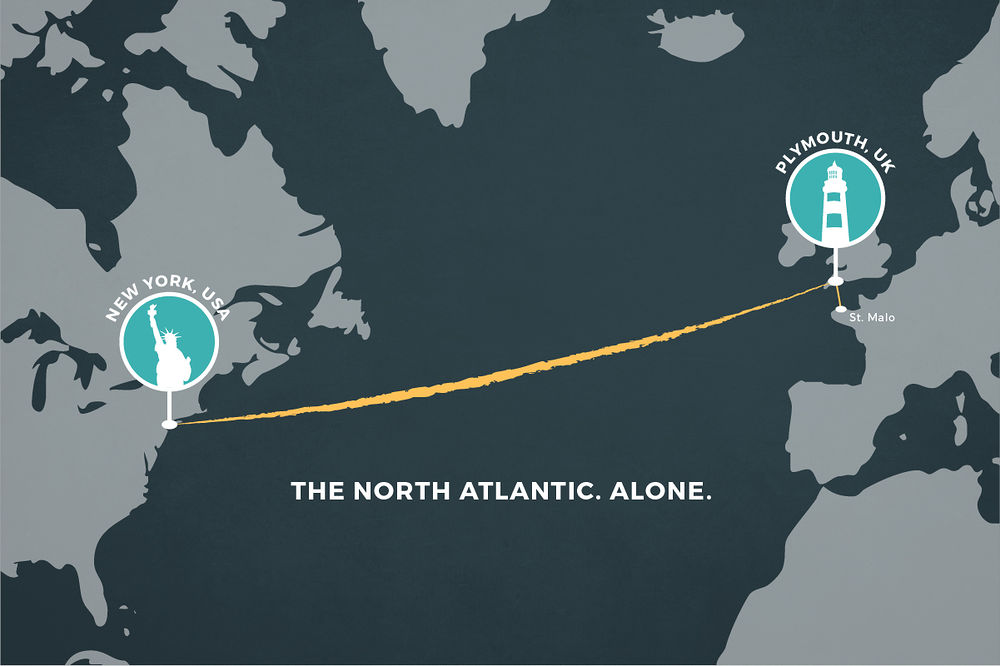

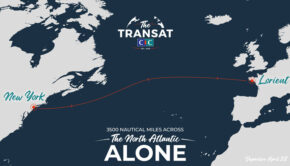
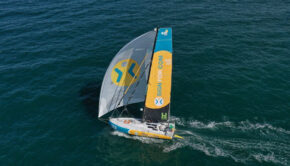
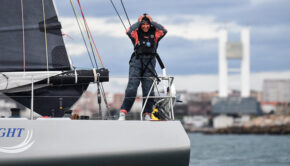
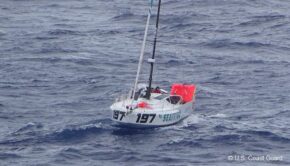
 We’ll keep your information safe.
We’ll keep your information safe.